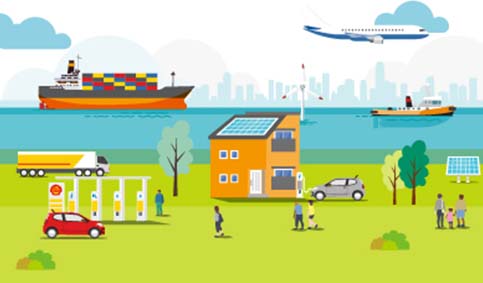Global tax reform
The global tax landscape is changing as governments seek to modernise tax systems that deal with increasingly digitalised economies. Traditional tax concepts are being challenged because many businesses earn revenues in multiple countries, even if they are not physically present in those countries. In addition, low-tax jurisdictions are continually in the spotlight, with many countries debating whether a low-tax policy in one jurisdiction may have a negative impact on others.
In recent years, international organisations and governments have discussed ways of addressing these challenges. Steered by the G20, the OECD has been developing proposals for a co-ordinated two-pillar framework.
Pillar One of the framework aims to align taxes more closely with local market engagement so that a larger portion of profits is taxed in the jurisdiction where sales are made, even if a multinational company does not have a physical presence in that jurisdiction. Pillar Two requires multinational companies to pay at least 15% tax on the profits they make in each jurisdiction where they operate.
The two-pillar response was supported in October 2021 by more than 130 countries. The OECD issued the Pillar One rules in October 2023, although it remains uncertain when they will be implemented. Pillar Two is more advanced, and, in 2022, many countries announced their intention to implement the Pillar Two rules and their timelines for doing so. In addition, some are introducing or increasing their domestic direct taxes and/or reviewing their use of incentives.
Shell strongly supports a transparent and co-ordinated approach to improving the global tax system, rather than unilateral, unco-ordinated legislative actions. Countries should decide, build consensus and agree on the applicable legislation. We believe deep and broad consensus is needed to ensure the kind of co-ordinated implementation of international fiscal agreements that will yield clear, predictable and principle-based tax legislation. Business input is necessary for the development of these rules.
Shell supports the OECD's framework and provides input to the OECD and to countries implementing the framework through a public consultation process. Pillar Two rules will apply to Shell from 2024. This may result in us paying additional taxes each year on our activities in low-tax jurisdictions, depending on our business results in those jurisdictions.
The new rules bring additional complexity. In 2022, we started a multi-year Pillar Two project to put in place the data systems and processes that we will need to comply with the new rules. By automating our processes and systems as much as possible, we aim to achieve compliance in a more efficient, controlled and timely manner.

The OECD two-pillar framework was supported in October 2021 by more than 130 countries.
Read more in Low-tax jurisdictions, Tax incentives and Data and digitalisation.










